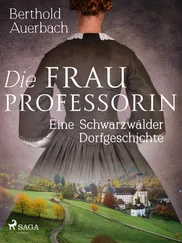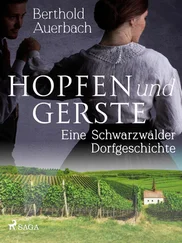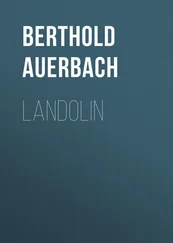Berthold Auerbach - Waldfried - A Novel
Здесь есть возможность читать онлайн «Berthold Auerbach - Waldfried - A Novel» — ознакомительный отрывок электронной книги совершенно бесплатно, а после прочтения отрывка купить полную версию. В некоторых случаях можно слушать аудио, скачать через торрент в формате fb2 и присутствует краткое содержание. ISBN: , Жанр: foreign_antique, foreign_prose, на английском языке. Описание произведения, (предисловие) а так же отзывы посетителей доступны на портале библиотеки ЛибКат.
- Название:Waldfried: A Novel
- Автор:
- Жанр:
- Год:неизвестен
- ISBN:http://www.gutenberg.org/ebooks/32446
- Рейтинг книги:3 / 5. Голосов: 1
-
Избранное:Добавить в избранное
- Отзывы:
-
Ваша оценка:
- 60
- 1
- 2
- 3
- 4
- 5
Waldfried: A Novel: краткое содержание, описание и аннотация
Предлагаем к чтению аннотацию, описание, краткое содержание или предисловие (зависит от того, что написал сам автор книги «Waldfried: A Novel»). Если вы не нашли необходимую информацию о книге — напишите в комментариях, мы постараемся отыскать её.
Waldfried: A Novel — читать онлайн ознакомительный отрывок
Ниже представлен текст книги, разбитый по страницам. Система сохранения места последней прочитанной страницы, позволяет с удобством читать онлайн бесплатно книгу «Waldfried: A Novel», без необходимости каждый раз заново искать на чём Вы остановились. Поставьте закладку, и сможете в любой момент перейти на страницу, на которой закончили чтение.
Интервал:
Закладка:
On this occasion, however, he retained his spectacles, and spent less of his time with Rothfuss than with Martella, who seemed to have become fonder of him than of any of us. In the evenings and on Sundays, she would take long walks with him in the woods, and would talk unceasingly.
One evening Richard said:
"I received the great academical prize to-day. Martella said to me: 'I can hardly believe that you are a professor; you are so-so wise, and have so much common-sense, and can talk like-like a wood-keeper's servant.' Can you imagine greater praise than that?
"And let me tell you, moreover, that Martella is full of wisdom. She knows every creature, the beasts of the field and the birds of the air. And besides that, she can read the human heart thoroughly. I could not repeat some of her opinions to you without committing a breach of confidence. But I can tell you that she has split many a log, and knows how to swing her axe to the right spot.
"Yes, Ernst is a lucky fellow; I am only fearful that he may not understand her simple nature. She is too wayward. I trust that he may learn to see in her a real incarnation of undefiled holiness and majesty. It is true that in her case they manifest themselves in the form of a girl not given to blissful tears, but the very embodiment of joy itself.
"While walking along the road, she was chewing twigs of pine, and handed a few to me, with the words: 'Taste them; there is nothing half so good as these.'
"When I told her that, as she could get better and more regular fare, she had better give up this habit of chewing pine needles, especially as it excited her nerves, she answered: 'I think you are right. They always excite me terribly.'
"We were about to cross a meadow. I was afraid of the wet places. 'Follow me,' said she, 'and be careful to look out for the molehills, for there is always dry soil underneath them.'"
While Richard was thus discoursing with unwonted enthusiasm, Johanna had risen from the table and had beckoned to her daughter to follow her.
Richard and my wife had noticed this as well as I had done. They did not allude to it, however, but continued their conversation, agreeing that it was best for the present to let Martella have her own way. They thought that she would in due time undoubtedly awaken to a longing for life's nobler forms, and the deeper meaning that lay beneath them.
My wife had no set plan on which to educate Martella.
"She is to live with us, and that of itself will educate her. She sees every one of us attending to his appointed labor. That will, of itself, soon teach her where her duty lies, and will help to make her orderly and methodical. She sees that our lives are sincere, and that, too, must do her good."
My wife was careful to caution Richard against teaching her any generalities, as they could be of no use to her.
Martella was not gentle in her disposition. She was severe towards herself as well as towards others. She had no compassion for the sufferings of others. Her idea was that every one should help himself as best he could.
She had never cared or toiled for another being. Like the stag in the forest, she lived for herself alone. My wife nodded silent approval when Richard observed, "In a state of nature, all is egotism; gentleness, industry, and the disposition to assist others are results of culture."
On the very day on which Richard had to leave us, the Major arrived at our house. He was on a tour of inspection, and had been examining the horses which the law required the farmers to hold ready for government uses.
Our village was not included in his district, and he had gone out of his way to pay us this visit. He was in full uniform. His athletic, hardy figure presented quite a stately appearance, and his honest, cheerful manner was quite refreshing.
He was glad to be able to inform us that the ill-will of his superior officers, in which even the minister of war had participated, had not injured him with the Prince. Although there had been three competitors for the position, the Prince had selected him, and had personally informed him of his promotion with the words, "I have great respect for your father-in-law, and believe that he is a true friend of the state."
The Major was not wanting in respect and affection for me, and his behavior to my wife was marked by a knightly grace, and filial veneration. When Richard told him how Martella had in himself seen her own betrothed with ten years added to his real age, he replied: "I have never said so, but it has often occurred to me that, when she is older, Bertha will be the very picture of her mother as we now see her."
Richard was an excellent go-between for Martella and the Major, who had brought a necklace of red beads which Bertha had sent to the new sister-in-law.
Although Martella's face became flushed with emotion, she did not utter one word of thanks. She pressed the beads to her lips, and then stepped to the mirror and fastened the necklace on. Then she turned towards us, while she counted us off on her fingers and said, "I am a sister-in-law. Now I know everything, and have everything. I have a pastor, a professor, a major, a forester, a great farmer, and-what else is there? Ah, yes, now I know-a builder."
"Yes, we have one; but he is in America."
"I will have nothing to do with America," said Martella.
The Major ventured the remark that Ernst had acted unwisely in leaving the service; he seemed made for a soldier, and the best thing he could do would be to return to the army. But in that case he would have, for a while at least, to postpone all thoughts of marrying.
"He need not hurry on my account," interrupted Martella; "I am sure I shall put nothing in his way. I, too, shall need some time to make myself fit. I shall have to put many a thing in here," pointing to her forehead, "before I shall deserve to be a member of this family. Now I have the necklace that my sister-in-law sent me, around my neck, and do not mind being tied, and-Good-night!"
She reached out her hand to my wife, and then to each one of us. After which she again grasped my wife's hand, and then retired.
Richard explained Martella's peculiar characteristics to the Major. Both in thought and in action she was a strange compound of gentleness and rudeness.
The Major asked whether we knew anything about her parents. Richard replied that she had imparted facts to him that bore on the subject, but that they were as yet disconnected and unsatisfactory, and that he had given her his word of honor that he would reveal naught, until she herself thought that the proper time had come.
We kept up our cheerful conversation for some time longer. Suddenly it occurred to the Major to observe that the dispute between Prussia and Austria was taking a dangerous shape, and that, according to his views, Prussia was in the right. The military system of the confederation could not last long in its present condition.
Thus we were brought face to face with serious questions.
Of what import was the transformation of a child of the forest, when such weighty matters were on the carpet.
But while the clouds pass by over our heads, and the seasons depart, the little plant quietly and steadily keeps on growing.
CHAPTER X
In the winter of 1865 I left home to attend a session of the Parliament.
My neighbor Funk, who was also a delegate, accompanied me.
It grieves me to be obliged to describe this man or even to mention him.
He caused me much sorrow. He humiliated me more than any other man has ever done, for he proved to me that I have neither worldly wisdom nor knowledge of men. How could I have so egregiously deceived myself in him? I am too hasty in determining as to the character of a man, and when I afterwards find that his actions are not in keeping with my conception of what they should be, the inconsistency torments me as if it were an unsolved enigma. In one word, I have suffered much because of a lack of reserve. Unfortunately I must give all or nothing. Even now I cannot help thinking that he must be better, after all, than he seems. I find, on comparing myself with him, that he has many an advantage over me. He is twenty years younger than I am, and yet he seems as if he had matured long ago. I shall never be that way, no matter how long I live. I am always growing.
Читать дальшеИнтервал:
Закладка:
Похожие книги на «Waldfried: A Novel»
Представляем Вашему вниманию похожие книги на «Waldfried: A Novel» списком для выбора. Мы отобрали схожую по названию и смыслу литературу в надежде предоставить читателям больше вариантов отыскать новые, интересные, ещё непрочитанные произведения.
Обсуждение, отзывы о книге «Waldfried: A Novel» и просто собственные мнения читателей. Оставьте ваши комментарии, напишите, что Вы думаете о произведении, его смысле или главных героях. Укажите что конкретно понравилось, а что нет, и почему Вы так считаете.












